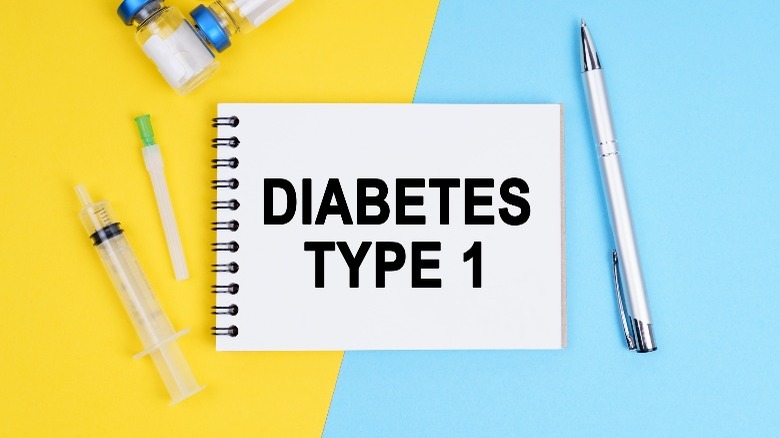The Startling Link Between Adolescent Obesity And The Less Common Type 1 Diabetes
While obesity has been known to be connected to type 2 diabetes, the results of a large new study out of Israel show that obesity may also be linked to type 1 diabetes. 1.5 million Israeli teenagers were included in the study and the results showed that the teenagers who had obesity were two times as likely to develop type 1 diabetes as adults compared to the teenagers who maintained a healthy weight. This connection between teenage obesity and adult type 1 diabetes was more proof that supported the importance of maintaining a healthy body weight, explained Frank Martin, senior director of research at JDRF, a nonprofit that funds type 1 diabetes research, who was not involved in the study (via U.S. News & World Report).
Type 2 diabetes, which is more common than type 1 diabetes, comes about as a result of the body's inability to properly use the hormone insulin, which helps manage your blood sugar. Obesity and older age are common risk factors for the condition. Type 1 diabetes, on the other hand, is an autoimmune disease, often diagnosed in adolescence or childhood, in which the immune system attacks the cells in the pancreas that produce insulin. Those diagnosed with type 1 diabetes need to take synthetic insulin via daily injections or an insulin pump to survive; however, people with type 2 diabetes can often manage their condition through a healthier diet and exercise, along with oral medications, per U.S. News & World Report.
Type 1 diabetes: symptoms and treatment
According to the Centers for Disease Control and Prevention (CDC), type 1 diabetes used to be known as juvenile diabetes due to its association with children and teenagers; however, people of any age can develop the disease. Roughly 10% of people who have diabetes have type 1 diabetes, and while there is no known prevention, there are a number of ways that type 1 diabetes can be treated.
Symptoms of type 1 diabetes oftentimes look like other health issues and can come on suddenly. They include an unexpected drop in weight, increased thirst and hunger, fatigue, blurred vision, and sudden bed-wetting in children, per the Mayo Clinic.
A basic blood test usually reveals if you have type 1 diabetes. Your doctor may also give you a urinary test to check for ketones, which confirms that you have type 1 diabetes as opposed to type 2.
As far as treatment, this is largely going to be up to you to develop and maintain a plan. In addition to having to have a daily insulin injection or wearing an insulin pump, you can better manage the condition by reducing stress, exercising regularly, getting good quality sleep, and maintaining a healthy diet. Also, be sure to schedule regular appointments with your team of healthcare providers who can provide support and additional strategies (via CDC).


